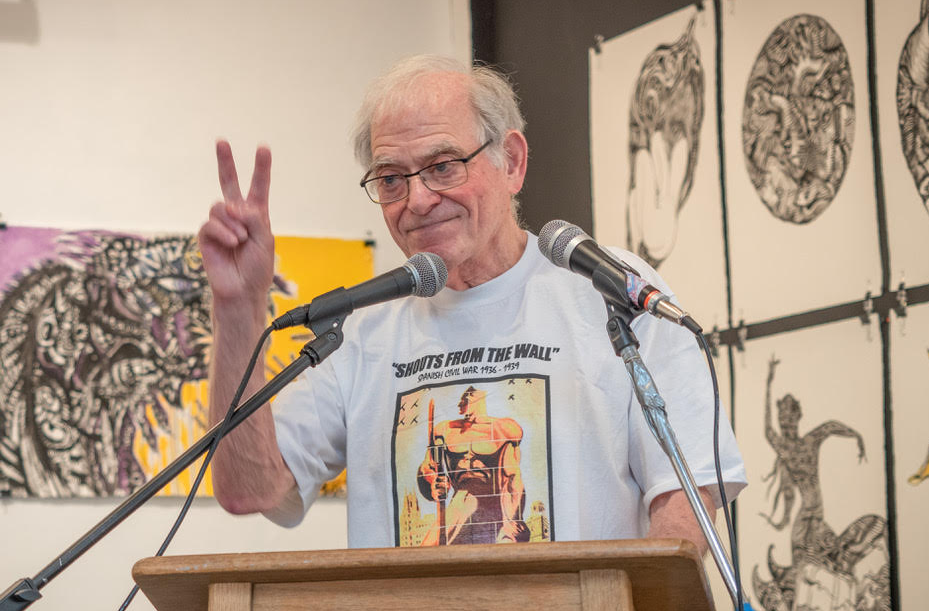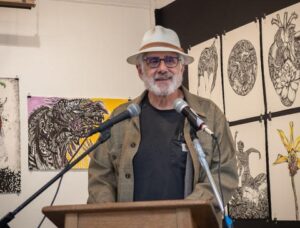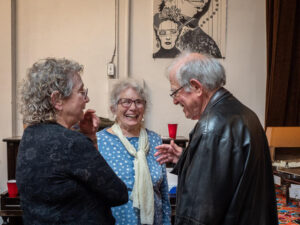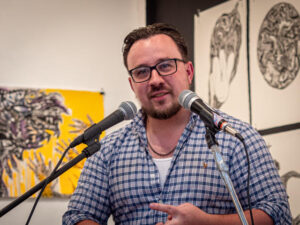An Injury to One is an Injury to All: ALBA Spotlights Labor
The Congress of Industrial Organization (CIO) was founded in 1938, but its beginnings go back to 1935— less than a year before the outbreak of the Spanish Civil War. As the labor movement occupied the front pages, in other words, so did news about fascism spreading across Europe. It was no coincidence that many union members saw their struggle as part of a united front against fascism and volunteered to fight in Spain. This was especially true of the International Longshore and Warehouse Union (ILWU), which was established in 1937.
On July 26, as a part of the Bay Area Labor Fest, ALBA’s West Coast event honored the longshoremen who fought in Spain. It included a tribute to ILWU leader and Lincoln vet Archie Brown (1911-1990) and his wife Hon (1917-2010), who served for years as the treasurer of the Veterans of the Abraham Lincoln Brigade Bay Area Post.
The origins of the ILWU go back to the 1934 west coast maritime workers strike that became the San Francisco General Strike. In previous strikes, the employers had recruited African Americans from the south as strike breakers. But this time, under Harry Bridges’s leadership, the union aggressively reached out to welcome African American workers into the union. The union’s paper, The Waterfront Worker, called for non-discrimination on the basis of creed, color, or political belief. The union’s solidarity made them a cause célèbre.
At this year’s event, Claude Potts, Librarian for the Romance Languages Collections at UC Berkeley, spoke about a new monument at the university campus for Robert Merriman, a graduate student at Cal who served as the first commander of the Lincoln Battalion. Potts described how Merriman and his wife Marion organized demonstrations against the use of the football team as strike breakers in the 1934 strike. The monument will be installed on the UCB campus later this year.
When WWII ended and the Cold War began, President Truman threatened to use the military to break the longshoreman strike of 1946. The ILWU responded with telegrams from unions all over the Pacific Rim pledging that workers at the other Pacific ports would refuse to unload any the cargo, forcing Truman to back down.
In the 1950s, while other unions agreed to limit their scope of activities to wages and working conditions, the ILWU joined other social movements. It was also the first union to oppose US military intervention in Vietnam. In the 1980s, the union refused to handle South African cargo for 11 days and engaged in work stoppages protesting the military dictatorships in Chile and El Salvador.
At the event, Peter Carroll, ALBA’s former Board Chair, spoke about Lincoln vet Archie Brown’s leadership role in many struggles opposing McCarthyism. When the Taft-Hartley Act banned communists from union leadership, Brown was forced to go underground for four years. He was later arrested and convicted under the Landrum Griffen Act, which prohibited unions to elect Communists as officers. He fought the conviction all the way to the Supreme Court, which declared the anti-communist laws unconstitutional.
Bettina Linares, the daughter of Ana Pérez, the former president of the Friends of the International Brigades in Spain, recited a poem by Bertolt Brecht:
There are men who struggle for a day and they are good.
There are men who struggle for a year and they are better.
There are men who struggle many years, and they are better still.
But there are those who struggle all their lives: These are the indispensable ones.
“Archie Brown was one of those indispensable men,” she said.
Other speakers included Robyn Walker and Brian McWilliams of the ILWU; Stephanie Brown and Sean Farrell, the daughter and grandson of Archie Brown; ILWU labor historian Harvey Schwartz; and activist and documentary photographer David Bacon. ALBA’s new board member, Steve Birnbaum, a worker’s compensation lawyer for longshoremen, helped arrange the event. Moderated by Richard Bermack, it can be viewed online through ALBA’s YouTube channel.
ALBA is planning several other programs about the labor movement. On August 23, we’ll feature a screening and discussion of Sacco and Vanzetti, a feature documentary by ALBA board member Peter Miller. And this year’s Susman Lecture will be presented by Karen Nussbaum, the co-founder and first director of 9to5, National Association of Working Women, and currently the Director of Working America. Organized across race and class lines, 9to5 and inspired the movie 9 to 5 with Jane Fonda, Dolly Parton and Lily Tomlin, and also 9 to 5: The Story of a Movement, by documentary filmmakers Julia Reichert and Steven Bognar. Later this year, ALBA’s Perry Rosenstein Cultural Series will begin with a tribute to labor reporter Art Shields, who covered the Spanish Civil War for the People’s World, as well as the trial of Sacco and Vanzetti and the Battle of Blair Mountain.
Richard Bermack, a documentary photographer based in the Bay Area, serves on ALBA’s Program Committee. He is the author of The Front Lines of Social Change: Veterans of the Abraham Lincoln Brigade (2005).
















